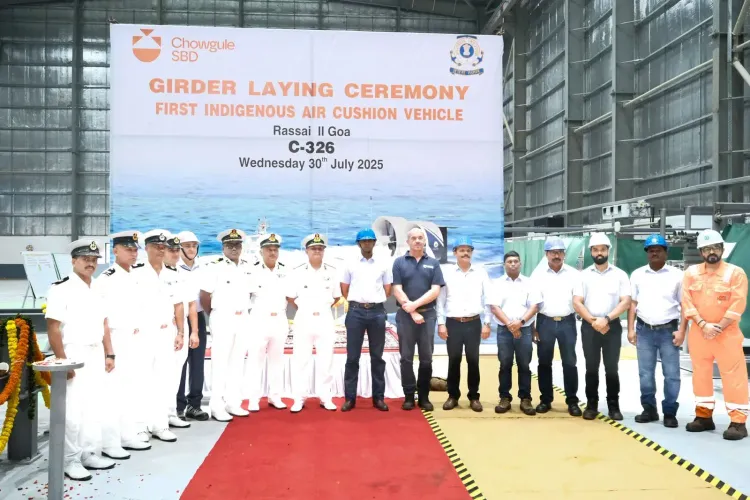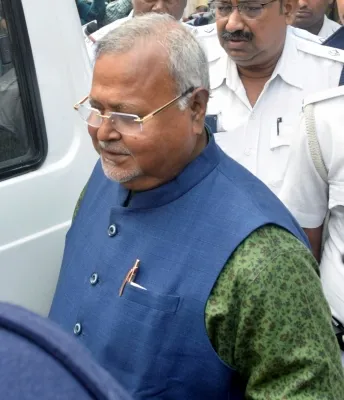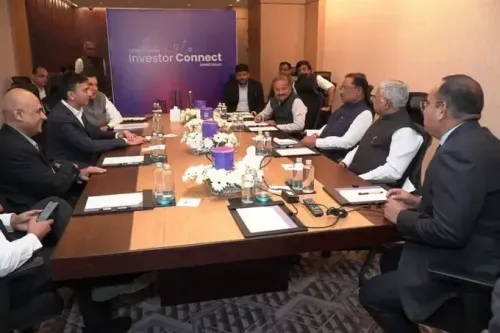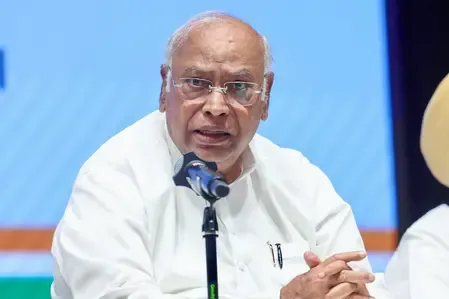Is India Set to Unveil Its First Homegrown Hovercraft for the Coast Guard?

Synopsis
Key Takeaways
- The first indigenously built Air Cushion Vehicle for the Indian Coast Guard is under construction.
- It aims to enhance coastal security operations across India.
- The hovercraft will enable rapid response for patrolling and rescue missions.
- This project aligns with the Aatmanirbhar Bharat initiative.
- India's defense production has reached unprecedented levels, with significant contributions from the private sector.
New Delhi, July 30 (NationPress) The journey of constructing India's inaugural indigenously manufactured Air Cushion Vehicle (ACV) for the Indian Coast Guard commenced on Wednesday. This significant milestone was marked by the girder laying and initiation of the erection ceremony at Chowgule & Company Pvt. Ltd.'s shipyard in Goa.
These hovercraft, designed based on established Griffon Hoverwork blueprints, are being developed with Indian expertise to cater to diverse coastal security operations. Upon induction, the ACVs will offer superior speed, tactical adaptability, and the ability to operate in shallow waters, facilitating rapid responses for patrolling, interdiction, and search and rescue missions across India's extensive maritime domain, as stated by the Ministry of Defence.
This ceremony represents a crucial advancement in enhancing India’s maritime response capabilities, attended by Deputy Director General (Materiel & Maintenance), ICG Inspector General Sudhir Sahni.
The construction of these hovercraft follows a contract signed with the Ministry of Defence on October 24, 2024, for six ACVs, highlighting the ICG’s commitment to achieving operational self-reliance under the Aatmanirbhar Bharat initiative.
According to Defence Minister Rajnath Singh, India’s indigenous defence production has reached an unprecedented high of Rs 1.46 lakh crore, with exports soaring to a record Rs 24,000 crore in 2024-25.
"Ten to eleven years ago, our defence production was merely Rs 43,000 crore, and it has now skyrocketed to a historic Rs 1,46,000 crore, with the private sector contributing over Rs 32,000 crore. Our defence exports, which were around Rs 600-700 crore a decade ago, have now exceeded Rs 24,000 crore," he noted.
The Defence Minister emphasized that Make-in-India is vital for national security and prosperity, asserting that the use of indigenous systems during Operation Sindoor has demonstrated India's capacity to overcome any adversary's defenses.
He also mentioned that the execution model of the Advanced Medium Combat Aircraft (AMCA) program will provide a unique opportunity for the private sector to engage in a major defence project alongside public sector enterprises, further enhancing the Make in India initiative in the defence sector, which was instrumental in the success of Operation Sindoor.








